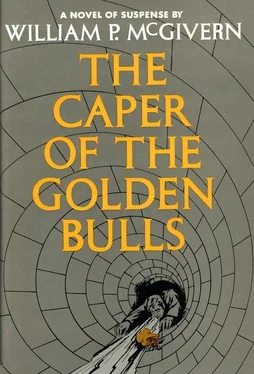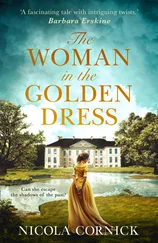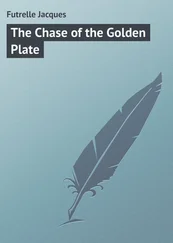But this element was precisely what appealed to Peter, for his strange genius warned him that the problem he faced could not be solved by prudent and cautious means. In such a situation, danger was often the finest camouflage. Peter respected the police of all countries profoundly; otherwise he would have been in prison long ago. But he knew from experience that the police at times fell into the error of confusing the criminal mind with their own, declaring, in effect: “Only a fool would take such a chance!” What they forgot, or had never known, was that men and women who went about breaking into banks and museums were fools, and quite naturally should be expected to behave like fools. Words such as ‘suicidal’ and ‘foolhardy’ and ‘impregnable’ were frequently the thief’s most valuable ally, for they created the climate of official complacence in which the seeds of a plan might sprout, undetected and unsuspected, into lovely and profitable blooms.
No, Peter thought, danger was an asset. The problem was timing! How to mesh frail and erratic human nerves and reflexes with the impersonal, inexorable sweep of a second hand... Stimulated by the challenge to his professional skills, Peter put his glass aside, scooped up his hat, and left the room.
Twenty minutes later he stood in the gathering darkness near a bridge and looked across the river towards the corrals of the bulls. Lights winked below him on the sluggish water. The area was now deserted and quiet; only an occasional worker strolled by to break the stillness with the damp and hollow ring of boots on the old cobblestones.
Peter stood with a stop-watch in his hand, and allowed his formidable imagination to create pictures against the night. How would it be next week during the fiesta of San Fermin? The hands of an official would grip a plunger, while his eye watched a second hand sweeping towards six o’clock. At the stroke of the hour a deep, booming roar would shake the city. Birds would fly screaming from the spires and steeples of the churches, and the runners packed in the Calle de la Estefeta would know that the fighting bulls had been released from their corrals.
Peter imagined the seven dark shapes trotting out to a false freedom in the early dawn, their shoulder muscles cresting ominously as they shadow-boxed the air with lethal horns. Flanked by massive, imperturbable oxen, the bulls would quickly calm down and bunch themselves into a protective encierro; in this fashion they would begin their race through the barricaded streets to the appointed place of their execution that afternoon, the Plaza de Toros at the foot of the Calle de la Estefeta.
The instant they formed an encierro and started running, a second blast would shake the city; and the daredevils in the streets would know that the bulls were loose and on their way.
Peter clicked his stop-watch, turned, and sprinted up the street. The first stretch was a difficult two hundred yards over treacherous cobblestones to the small plaza in front of the Ayuntamiento, Pamplona’s city hall. Arriving there, Peter leaned against a wall to catch his breath, and waved off sympathetic offers of air from several concerned Spaniards. Then he looked at his stop-watch. It would be tight, very tight, he realised grimly.
He inspected the plaza. During the running of the bulls all its openings and passageways would be sealed off with double wooden barriers. Every window with a view of the square would be packed with faces; crowds would throng the top of the barricades; the square itself would be occupied by a few dozen suicideros, those insanely courageous, or insanely neurotic, young men who would not take to their heels until they actually saw the bulls thundering up that two-hundred yard stretch from the river banks.
Fortunately, considering certain elements of his plans, Peter was quite certain that no one in the crowd would have eyes or thoughts for anything but the arrival of those bulls. The noise would mount in wild waves, and these would break into sheer pandemonium when the first dark and murderous shapes topped the rise of the street and exploded into the plaza. And that was fine, Peter thought.
He strolled across the square and went into a passageway between two buildings. It was narrow and dark and damp, and smelled of rust and old mortar. Peter played the beam of his flashlight over doors and windows. Moisture glistened slickly on the walls. The noise of the town was muted and indistinct; the passageway was like a narrow tomb stretching off to a gloomy infinity.
Peter felt the old excitement creeping over him. Steel bars and vaults were a gauntlet flung in his face, a challenge he couldn’t resist. He went carefully along the passageway until he came to a solid brick wall. There was no turning right or left. This was the end. The windows at the base of the wall were guarded with clusters of iron grille work Peter inspected them carefully under the beam of his torch, programming their measurements into data for the computers in his mind. But even as he worked he experienced a certain sadness, a certain guilty gloom, for he realised now how much he had missed this sort of thing, and how pleased and excited he was to be back at it. And he couldn’t help wondering if he had really been honest about wanting to make restitution for the colossal error he had committed during the war. Or had he simply been rationalising a need to steal? Or to prove, perhaps, that he was cleverer than the police?
Suddenly Peter blinked in surprise. He had always been vain about his eyesight, which was like that of eagles, but now, of all times, it appeared to be letting him down.
For there seemed to be two beams of light crisscrossing the barred windows at the base of the wall.
“Have you lost something, senior?”
Peter turned, smiling blankly. The second beam of light moved up to his face. The man directing it at him was a policeman. Peter had a shadowy impression of brass buttons, red epaulets, a young unsmiling face.
“As a matter of fact, I seem to have lost my way.”
“What address were you looking for?”
“Well, I don’t know. I’m trying to find the Banco de Bilbao. Someone told me it was near here.”
“He misinformed you, I’m afraid.”
“Perhaps I misunderstood.”
“Yes, that’s possible. You realise the Banco de Bilbao is closed?”
“Yes, I know. But I wanted to find it so I could get there first thing in the morning.”
The policeman smiled. “You’re not far from it right now.” He rapped his knuckles against the brick wall. “It’s on the other side of this building. Twenty or thirty feet away.”
“Is that so?”
“Yes. But unless you can walk through solid walls, I don’t think that will help very much.”
Peter smiled too. “No indeed.”
The policeman embroidered his little joke. “And I don’t imagine you’d want to buy some dynamite and blast your way into the bank.”
“No, I certainly wouldn’t.”
The policeman took Peter’s arm and led him back along the passageway to the square. “In that case, I think the best thing would be to walk around the block. You’ll be at the door of the Banco de Bilbao in a matter of minutes.”
“Well, thanks very much. And good night.”
“It’s nothing, senior Good night.”
The policeman, whose name was Carlos, smiled after Peter.
Tourists never seemed to be at home, he reflected philosophically.
Always losing their way, forever straying into strange places, and then smiling like shy children, like naughty children, when someone set them straight. With a tolerant shrug, Carlos turned and strolled off in the opposite direction, hands clasped behind his back, his clear dark eyes alertly roving the streets for anything amiss. Then Carlos frowned faintly, stopped and looked over his shoulder.
Читать дальше












